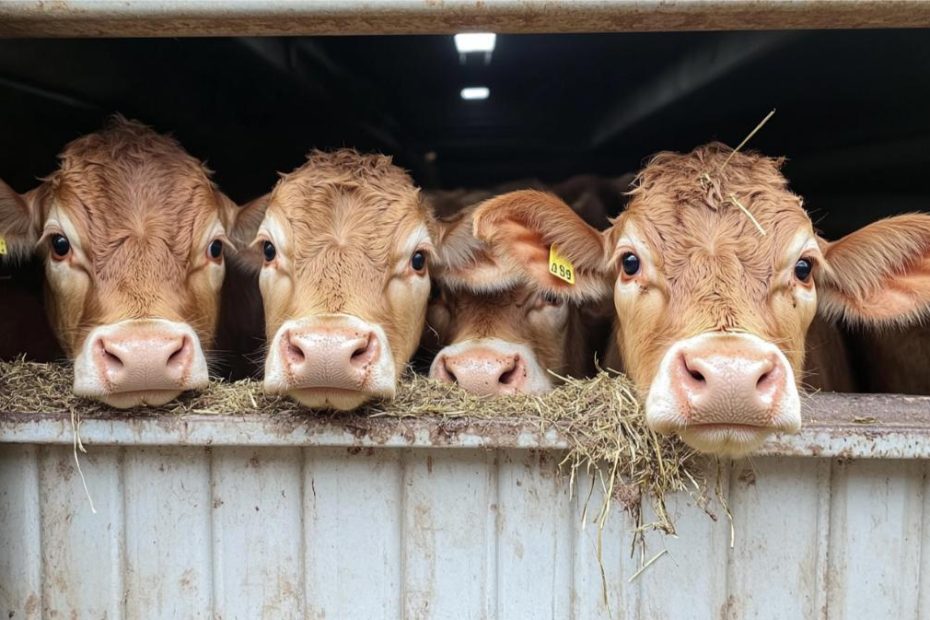Have you ever wondered what really happens behind the closed doors of factory farms? The truth might shock you. Animals raised for food often face harsh conditions and cruel treatment that the meat industry would prefer to keep hidden.
Farm animals are smart, feeling creatures who suffer greatly in industrial agriculture settings. Pigs, chickens, and cows crammed into tiny spaces can barely move.They’re often sick and stressed.
You’d be surprised to learn how similar these animals are to our beloved pets in their ability to think and feel.
But there’s hope. As more people learn about these issues, they’re speaking up and making changes. You have the power to make a difference too.
Let’s peek behind the curtain and see what’s really on your plate.
Key Takeaways
- Factory farm animals endure extreme confinement and distress
- Farm animals are intelligent beings capable of suffering
- You can help improve animal welfare through your choices
Unveiling the Hidden Realities of Animal Agriculture

The meat industry keeps many practices secret. You might be shocked to learn what really happens on factory farms. Let’s take a look.
The Harsh Environment of Factory Farms
Factory farms are not the idyllic places you see in cartoons. They’re crowded, dirty, and stressful for animals.
Imagine being stuck in a tiny cage your whole life. That’s reality for many chickens and pigs. You can’t turn around or stretch your wings.
Cows often stand in their own waste. The air is full of ammonia from all the poop. It hurts their lungs and eyes.
Profit often comes before animal welfare on these farms. Animals are seen as products, not living beings.
Life and Welfare of Farm Animals
Farm animals don’t get to live like… well, animals. Their natural behaviors are totally restricted.
Chickens can’t scratch in the dirt or take dust baths. Pigs can’t root around or play. Cows can’t graze in open fields.
Many animals are pumped full of antibiotics. It’s not to keep them healthy. It’s to make them grow faster and survive the yucky conditions.
Moms are separated from their babies way too soon. Can you imagine how sad that makes them?
The Impact of Undercover Investigations
Undercover investigators are like secret agents for animals. They reveal what’s really going on behind closed barn doors.
These brave folks have shown us:
- Chickens with broken bones from fast growth
- Pigs in crates so small they can’t move
- Cows being hit and shocked to make them move
Their videos have led to:
- New animal protection laws
- Companies changing their practices
- People choosing to eat less meat
These investigations make a big difference. They help you see what your food goes through before it gets to your plate.
Beyond the Barn: Exploring Solutions and Legal Protections

Let’s look at some ways to make things better for farm animals. There are new food options and laws that can help protect animals from harm.
Advancements in Food Production
You might be surprised to learn about all the tasty alternatives to traditional meat and dairy. Plant-based meats are getting better all the time. They look, cook, and taste a lot like the real thing.
Protein companies are working hard to create yummy options that don’t harm animals.
You can now find plant-based burgers, sausages, and even “chicken” nuggets in many stores. These foods are often healthier and better for the environment too.
Lab-grown meat is another cool option on the horizon. Scientists are figuring out how to grow real meat without hurting animals. It’s not widely available yet, but it could be a game-changer for animal welfare.
Navigating the Legal Landscape
The laws around farm animal protection can be tricky. The Animal Welfare Act doesn’t cover most farm animals. But things are changing slowly.
Some states are passing new laws to give farm animals more space and better living conditions. For example, many places now require that egg-laying hens have room to spread their wings.
You can help by supporting groups that fight for animal law changes. These organizations work to create stronger legal protections for farm animals.
Remember, your food choices matter too. Buying from farms with high animal welfare standards sends a message to the industry. Together, we can make a difference for farm animals.
